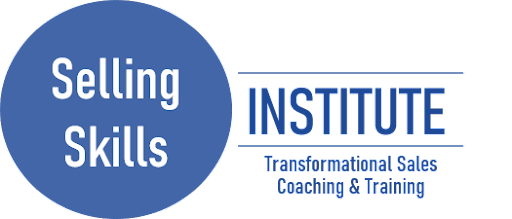“The Sound of Silence” is a song by the American music duo Simon & Garfunkel. The song was written by Paul Simon over a period of several months in 1963 and 1964. Generally considered a classic folk rock song, the song was added to the National Recording Registry in the Library of Congress for being “culturally, historically, or aesthetically important” in 2013.
A few days ago, I was listening to Sirius XM Radio and Simon and Garfunkel’s song, The Sound of Silence came on. It wasn’t the first time I heard the song, but on this occasion, the lyrics in the song struck a chord, unlike before.
It was these lyrics that captured my attention.
- “People talking without speaking”
- “People hearing without listening”
- “People writing songs that voices never share”
During a quiet moment, at the end of my day, I reflected on the Simon & Garfunkel’s song and thought about the power of silence in communication and the positive impact it could have on sales and selling.
Silence has the power to get people to think and to act, it can help slow the mind down to process information and come up with more profound awareness. It allows prospects and clients to dig deeply into their feelings and to weigh decisions. It is a powerful ally in building rapport, credibility, and trust.
The dictionary defines silence generally as “a lack of sound or noise” and in the context of communication it means “a period of time in which people do not talk.” In recent years, however, researchers have suggested that silence is not simply an absence of noise or doesn’t mean ‘nothing’, but constitutes a part of communication as important as speech.
Communication is simply about conveying a message and sometimes silence—a pause, slight hesitation, or empty spaces in conversation—can do that better than any words.
The challenge with silence is that people feel the need to fill the void of silence with needless chatter.
As an example, your client or prospect has just stopped talking, but you sense there’s more she could say. Would you be more likely to get a response if you remained silent or asked if she wanted to say more? I believe silence is a better option, if only because the person feels less pressure to talk.
Effective communication can only occur when mutual respect and listening takes place, yet our society promotes social conversation and discourages silence.
Let’s face it. Salespeople talk too much. And when salespeople talk too much, they generate too few customers. Being a great talker won’t make you a great sales professional because no one cares how much you know until they know how much you care.
Successful sales professionals listen in a finely attuned way to the subtleties of what makes their customers tick. They deliberately create listening space—moments of silence meant to convey empathy—giving customers time to think and inviting them into the conversation.
The very best salespeople avoid excessive talking when silence is a better alternative. They offer silence as a gift or as a mark of respect. They leave space in conversation for prospects and clients to step into their own “aha” moments and feel their pain and its impact.
In a recent HBR article, David Rock and Josh Davis explain that “aha moments that spark brilliant, unexpected solutions tend to crop up when our minds are quiet.”
Failing to pay close attention to the silent portion of a conversation can result in missing a vital part of the message. Astute communicators and top sales professionals listen for gaps, pauses, and hesitations. They hear and interpret silence. They treat pauses, for instance, as analogous to a flashing yellow light at an intersection—they pay attention to what comes next.
In sales, silence is an often-neglected communication skill. Silence rarely rates much more than a passing mention in most sales training and coaching programs.
Millions of dollars are invested each year on teaching salespeople how to pitch their product benefits, craft the right message, and deliver the perfect presentation; leaving salespeople with the impression that silence is either an afterthought or an accidental occurrence.
In corporate life, we learn to equate silence with doing nothing, and doing nothing is rarely valued as an effective application of professional skill. Since silence is not widely valued, it’s not widely developed.
Therefore, salespeople are apprehensive and uneasy about using silence and worse, not sure what to do when they encounter it. These experiences generate a palpable atmosphere of unease that can feel burdensome to buyers and sellers.
Throughout my coaching and training career, I’ve seen that the very best sales reps and sales managers have the ability to sit back, observe carefully, and listen intently. Whether applied to yourself or to others, the rare skill of creating and holding silence is worth developing.
Many salespeople make the costly mistake of thinking they will win sales by talking their way to a sale—by offering opinions, sharing knowledge, making suggestions, or using useless words trying to convince someone to buy their solution. It’s obvious, however, that a “talking mouth” is not the best way to facilitate deep thinking, define problems, and concisely deliver value-based solutions.
There are times when it is better to sit back, be silent, and let others do the talking. In some cases, a brief pause or simple silence on your behalf will get them talking even more.
Think it through. It is not your responsibility to fill every vacuum of silence with words that make noise. Words make noise, silence can talk.
Being quiet when we should talk creates dysfunction and disunity among buyers and sellers. But silence, when timed correctly, is the language of connection.
Author, William Isaacs says, “People are not interested in what they are missing, just what they think others have already missed.”
Here are four reasons to use silence in your communication:
1. Communicate better. Many of us talk too much. All of us occasionally can be guilty of over-talking a subject to the extent that our point is missed. Silence forces us to shut-up and get our message across in fewer words. Ironically, fewer words can result in a clearer, stronger message.
2. Hear what’s really being said. Keeping our tongue quiet frees us up to listen to our prospects and clients. When we’re not running off at the mouth, we can focus on what the other person is saying, plus pay attention to their verbal and non-verbal communication clues.
3. Listening space. Shift out of your narrative, story mode of thinking, and into giving attention to each moment of the conversation. Your moment-to-moment attention may help you uncover something you have not noticed previously—changes in tone of voice, a facial expression, a hand gesture, or a phrase from earlier in the conversation—that you skipped over.
4. Speed up the selling process. Being silent at times not only reduces the noise but also speeds up the selling process.
Whether you’re looking to establish an emotional connection with a buyer, shape an important conversation, or finalize a sale, good salespeople must be able to listen and use the power of silence to help them get things accomplished.
Give silence a try. It can take some practice to learn how and when to use it correctly, so be patient and give yourself time to learn. But when you do learn how to use silence effectively, look out. Your communication will become much more powerful and effective.
Charlie Anderson is the President of the Selling Skills Institute and bestselling author of four books.
If you’re looking for a competitive edge, one that will enable your sales team to out-think, out-compete, out-perform, and out-sell the competition, you should call me right now to explore whether SHIFT Thinking can transform your sales team into an unstoppable revenue machine.
Call 339-927-2746 or email me at [email protected] for a complimentary, no obligation, sales diagnosis. I’ll analyze your sales situation and provide you with my best advice on ways to improve.

